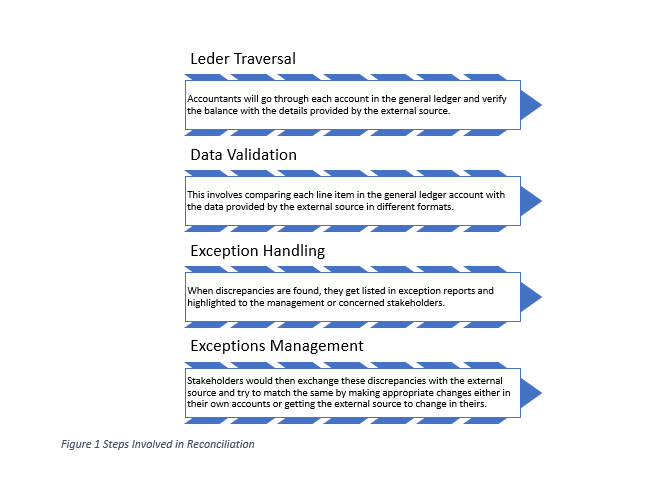Enormous Ways to Choose the Best Oder Management Software!
In the eCommerce industry order management system is essential for sellers to manage their orders expertly. One of the essential eCommerce business processes effectively helps in order fulfillment. It automates and streamlines the overall online order management process for you. Best order management software provides accurate inventory data in real-time and saves you from the horrific situation of Oos (Out of stock). OMS is vital to get a comprehensive database of your customers, including a detailed record of their returns and refunds.
The order management system productively keeps track of all your online orders and manages the inventory accordingly. Although if you are not using a compelling order management software, you may experience significant errors in the process of order fulfillment. Executing this process manually can lead you to the level of delivering disappointment to your valuable customers. Customers' expectations are pretty high, and they can't accept any errors from your end. To ensure that you select a robust order management software such as eVanik, never disappoint them in that terms. However, in this particular blog, we have mentioned some of the enormous ways to select an impeccable OMS for your eCommerce business.
Considerable Ways of Selecting a Tremendous OMS
In this fast-paced eCommerce business, online order management software is designed to abruptly fulfill orders among the various eCommerce channels you are selling your products. Your online business can not sustain itself without integrated order management software in this competitive industry. It is important for you to stop your customers from thinking that your service is slow, outdated, or not up to the mark as others are. To save yourself from getting into this situation, you need to add advanced order management software to your business. It will enhance your customers' experience and prove to be a cherry on the cake. There is numerous order management software available in the market, and it could be difficult for you to identify the right one for your business. However, here we are mentioning some considerable ways that can help you select the right OMS according to the nature and requirements of your business.
Smooth Integration with Internal System
It will help if you consider an essential aspect before choosing an order management software for your online business. It must have the integration feature and should integrate with your internal system. However, some OMS can significantly integrate with your accounting, inventory, and shipping management. Easy integration assures that OMS will work efficiently and seamlessly. It also eradicates the risk of human errors and business failure. That's why you must consider this feature before subscribing to any order management software. OMS like eVanik has a specific integration feature with your internal system so that you can go for it.
Effortless Inventory Management
Inventory management is a vital part of the eCommerce business. That's why you must look for such an order management system that should have the animated feature of managing your inventories. It should have the ability to manage the multi-channel inventory under one panel. Oms should work in such a way that you never get into a situation of out of stock. It must have the feature of automatically adjusting the inventory on multiple eCommerce platforms while you sell your products. An effective order management software can minimizes the risk of customer dissatisfaction by organizing your inventory correctly.
Sturdy Shipping Management
How much time your customer will receive your product depends on the impactful shipping management. It will help if you always look forward to constructing a robust shipping management system. As soon as your order volume increases, it will get frustrating for you to handle all the shipping requirements manually. That is why you need ultimate order management software that can help reconcile the shipping issues and accelerate the order fulfillment process skillfully.
Ability to Provide MultiChannel Management
The order management system you select should have the ability to integrate all your eCommerce channels into one user interface. That will provide you with a clear insight of data and the total number of orders and reduce mistakes by providing all the vital information you require in one accessible place based on real-time data. You should always consider an order management system that provides multi eCommerce channel management facilities. Monitoring the sales orders of various eComm platforms through one panel can make your life easier and also diminish the chances of errors. eCommerce order management software such as eVanik has the ability to provide multi-channel management in one single panel. It lets you smoothly handle the operations of the eCommerce business through one window.
Upswing the Scalability
Ever since the pandemic, this glorious industry has opened the door to opportunities for sellers. However, It is not always possible to keep upgrading to the latest version of order management software. Thus, while selecting an OMS for your eCommerce business, you must consider the long-term requirements. It will help if you go with such order management software that can upswing your order volumes with time. So, an advanced order management system can help your online business get flexibility and scalability.
Return Reconciliation
Since returns and refunds have become an integral part of the online business, you must consider an order management software that contains the feature of return reconciliation. If your business faces return every day, it can be difficult for you to keep track of those returned orders and update your inventory according to that. Advanced OMS software such as eVanik provides the uttermost feature of return reconciliation.
Apart from these enormous ways, the first thing you need to do while selecting an order management software is to identify the requirements of your online business. Once you figure out which aspects of the eCommerce process your business is lacking, you can start looking for the solutions. In this manner, you will be able you select the best order management for your online business.
Conclusion
Thus, many software is available in the market for eCommerce order management. But you need to select the best one for your eCommerce business; the right order management system for you could be the one that eliminates almost every manual process and saves your precious time. First of all, you should determine which part of your business you need to automate and invest in software that can effectively fulfill your requirements. Remember that order management software is the uttermost need of today's eCommerce industry. To provide your customers with the fastest, error-free, and customized order fulfillment experience, you must have one impeccable OMS. In this manner, eCommerce order management software such as eVanik can provide you with the ultimate services and help your business snowball.





